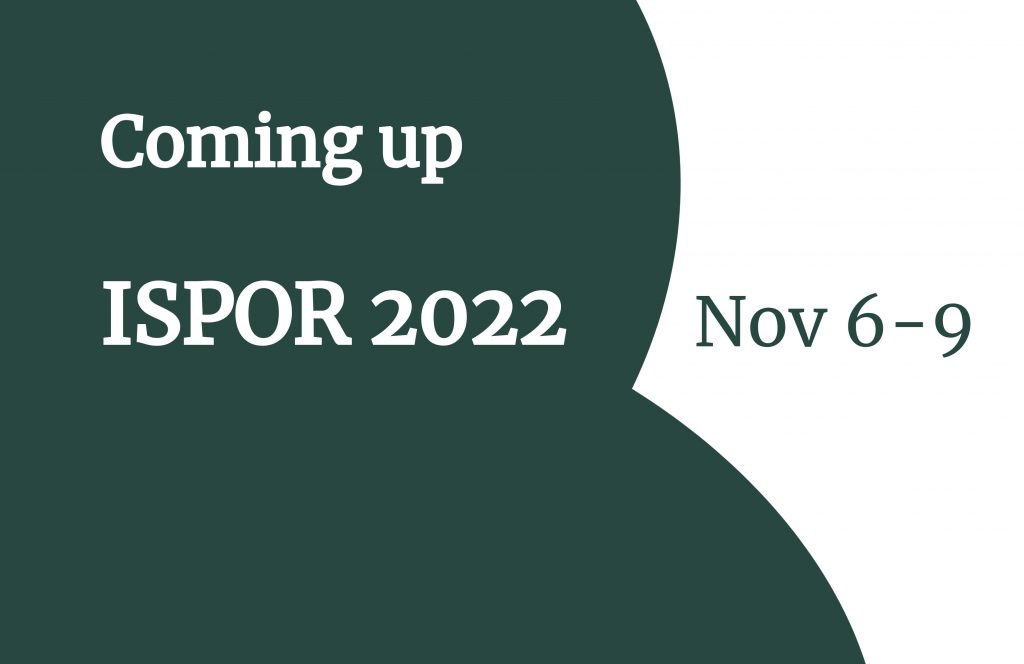ESiOR will participate in ISPOR Europe 2022!
ISPOR is the biggest conference of Health Economics and Pharmacoeconomics. This year the European conference will take place in Vienna, Austria, and the theme is Collaborating Across Borders: Building & Using Evidence to Enable Access. We proudly present three posters.
Pulmonary Arterial Hypertension (PAH) and Chronic Thromboembolic Pulmonary Hypertension (CTEPH) Patients in Finland (FINPAH) – a Descriptive Retrospective Real-World Cohort Study between 2008 and 2020
Nation-wide real-world evidence of clinical outcomes among Finnish PAH and CTEPH patients was lacking. This retrospective RWD study assessed patient characteristics, risk groups and patient prognosis, treatment pathways, and responses to treatment strategies in Finland. The main objective of this sub-study was to describe FINPAH real-world study patient characteristics, and patient prognosis in terms of hospitalisations and survival.
Comparison of Certified Secure Processing Environments (SPE) – Novel Platforms for Collection, Augmentation, Structuring, Transfer, Management, Analysis, Sharing, Reporting, and Storage of Sensitive Data?
Personal, social, and health care data can only be analysed in one of the listed SPE for the purposes specified in the Act on the Secondary Use of Health and Social Data: scientific research, the compilation of statistics, authority tasks of planning and investigation, and teaching material preparation. In the poster, we compare the listed SPEs. SPEs have differences, encouraging novelty and they seem to be aimed for different purposes. The forthcoming European Health Data Space (EHDS) is expected to include a pathway for more efficient international use of SPEs.
Secure Processing Environments (SPE) Are Needed for the Cybersecure Collection and Secondary Use of Personal, Health, and Social Data
Outcomes research provides insight to the end results of the care provision technologies, structure, and processes impacting individuals and populations. Outcomes research may improve effectiveness in health care through improvements in decision making, market access and development of treatment guidelines and best practices. Personal, health, and social data (PHSD) are needed for the improvements. The use of PHSD is governed by legal frameworks such as the Health Insurance Portability and Accountability Act (HIPAA) in the US and the General Data Protection Regulation (GDPR) in the EU. A key interest of novel evidence generation is the possibility to collect new research data in structured form from patient charts or augment existing structural data securely using a secure processing environment (SPE).
We are really excited to attend, present our work, and hear insights from other professionals in the field!
See the full programme of the conference here.
Further information: Erkki Soini
